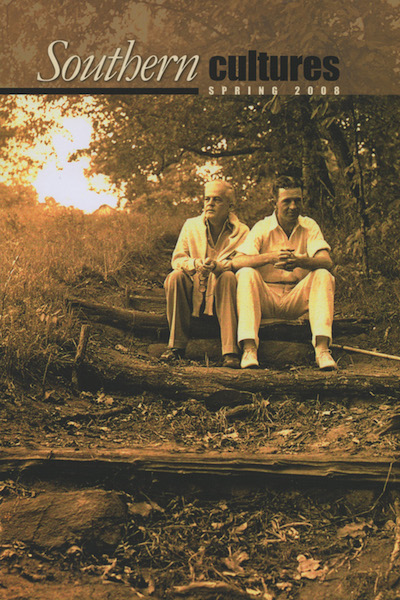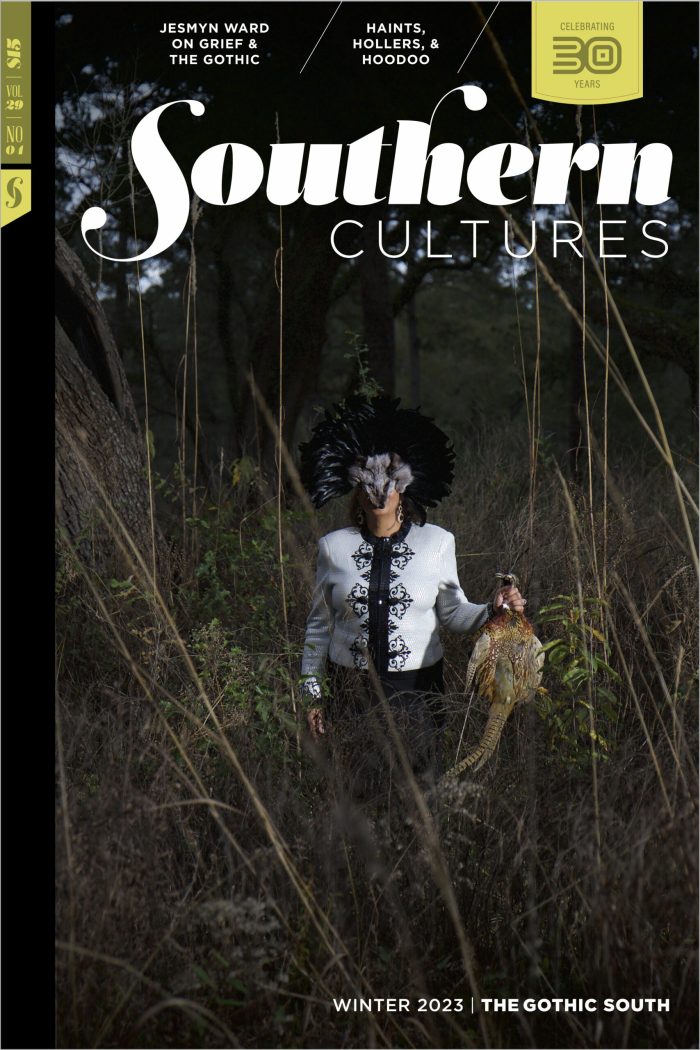by Harry L. Watson
“It’s not hard to see how nostalgia could become a southern theme song.” “The past is never dead. It’s not even past.” William Faulkner’s most famous line comes up a lot whenever people discuss the American South. The way some people interpret it, the idea seems to be that the future never happens down South; »
by Michael K. Steinberg
“Until the announcement in 2005 of the rediscovery of the ivory-bill, there had not been a broadly accepted ivory-bill for sixty years.” Among birders in the South, the Ivory-billed Woodpecker is a haunting presence whose status is debated at ornithological meetings, in popular media outlets and leading scientific journals, and on birding web sites such »
by Melissa A. Schrift
“Against the brutal backdrop of its own history Angola now poses itself as a progressive prison.” When I entered the grounds of Louisiana State Penitentiary, I saw a maze of rawhide belts and purses, paintings reminiscent of a back aisle thrift store, and elaborate wooden objects that evoked the country crafts of my southern childhood. »
by Keri McLeod
“I shot primarily under low light, which allowed mystery to sink into each image and space.” The Wilderness Act of 1964 allowed Americans to enter certain lands, but it also urged them to make their visits brief and leave no mark. My photographs represent the relationship between nature and those traces of cultural objects or »
by Benjamin E. Wise
“‘What I wrote seemed to me more essentially myself than anything I did or said.'” During his life and since his death in 1942, many people wanting to understand the American South have looked to William Alexander Percy. Understanding the man, it has seemed, might help us understand the region. Born into a prominent southern »
by William Alexander Percy
“There is a land beyond the lands you know . . .” (After reading Hudson’s “Green Mansions”)There is a land beyond the lands you know,Circled by silver veils of woven rainAnd green,clear sunsets with the moon in towAnd woods and dark savannahs of wild grain.
by Frederick Douglass Opie
“Poor white and black southerners ate molasses in some form with almost every meal.” Molasses has been one of the three Ms of the diet of southern common folks, along with meat (salt pork) and meal (corn meal). It has served as a baking ingredient, condiment, and cold remedy, and it was central to special-occasion »
by Elaine Neil Orr
“A Buffalo Gal would not be bowled over by every little thing that came along.” In her thirteenth year, the year she almost became popular in America, Alice learned some new words, or she learned some words newly. The first was bitch and it was unthinkable. No case could be made for comparing a woman »
by Leonard Rogoff
Brandeis University Press, 2006 In the introduction to the anthology Jewish Roots in Southern Soil: A New History editors Marcie Cohen Ferris and Mark Greenberg begin defensively: “For more than a century historians have wrestled with the question, why study southern Jewish history?” Such opening gambits are commonplace in studies of southern Jewry. Ferris and Greenberg respond »
by Otis L. Graham
Louisiana State University Press, 2005 Pete Daniel has written valuable books on southern agriculture and culture, Mississippi River floods, and much else, and now he adds to the too-small but growing library of books on the environment in southern history. His topic is an important new presence in the air, soil, and water of the »
by Michael Kreyling
University of Georgia Press, 2006 Leigh Anne Duck’s The Nation’s Region: Southern Modernism, Segregation, and U.S. Nationalism launches The University of Georgia Press series “The New Southern Studies,” edited by Jon Smith and Riché Richardson. Richardson is known for her work on black masculinity (the topic of the second book in the series) and Smith is known »
by Brian Douglas Steele
HarperCollins, 2005 Christopher Hitchens, whose recent drift from the left has caused no little anxiety among former comrades, has used the editorial pages of the Wall Street Journal, among other venues, to retroactively (or is it simply anachronistically?) lay Thomas Jefferson’s blessing on the Bush Doctrine of preemptive war for the purposes of exporting democracy. Now, »
by Barbara Brown Taylor
University of Alabama Press, 2006 When I speak with New Englanders or Californians about religion, I soon realize that we are not talking about the same thing. They speak as if religion were an elective—one allegiance among many that a person might choose or decline—while I mean something as elemental as air. I am pretty »
by Johanna Nicol Shields
Louisiana State University Press, 2006 The cover art and title to Andrew Silver’s Minstrelsy and Murder are fair warning: this is a book about humor that will not let you smile. As Silver sees it, the late nineteenth century marked the end of a genial southern humor that obscured the injustices of class, gender, and race. Slowly, »





